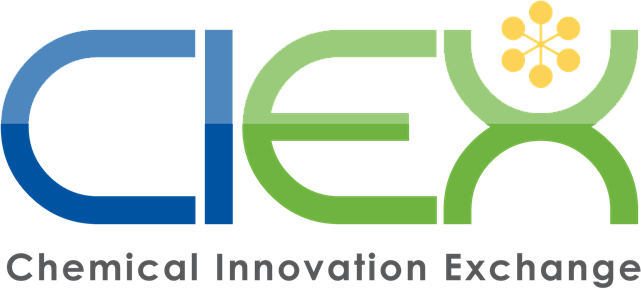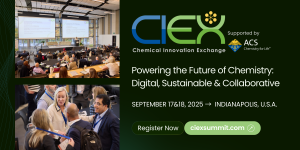Contents
- 1 Reimagining Carbon: How the Circular Carbon Economy Is Transforming the Chemical Industry
- 1.1 CIEX: Without giving too much away – what is the core message of your talk and what would you like delegates to remember?
- 1.2 CIEX: What motivates you to join CIEX this year?
- 1.3 CIEX: In what ways have emerging technologies most significantly transformed your R&D process over the past few years – and what impact has this had on speed to market?
- 1.4 CIEX: What are the biggest challenges – and best practices- you’ve seen in scaling innovation from lab to market while staying aligned with business objectives?
- 1.5 CIEX: Open innovation, customer responsiveness, and integrated supply chains are gaining traction. What partnerships or collaborations have been most impactful in driving sustainable growth for your business?
- 1.6 CIEX: Looking ahead, what do you see as the most critical capability chemical companies must develop to remain competitive in the next decade?
- 2 Powering the Future of Chemical Industry at CIEX 2025 Summit
Reimagining Carbon: How the Circular Carbon Economy Is Transforming the Chemical Industry
Editor’s note: Dr. Jennifer Holmgren is Chair & CEO of LanzaTech. She will be speaking at our upcoming CIEX 2025 Summit on Sep 17-18, 2025 in Indianapolis, U.S.A. She will be joined by CXOs and VPs of innovation and R&D from DOW, BASF, Sumitomo Chemical, Arkema, DuPont, Evonik, Eastman and many more. Below is a preview of what she will talk about at the summit.
Under Jennifer’s guidance, LanzaTech is developing a variety of platform chemicals and fuels, including the world’s first alternative jet fuel derived from industrial waste gases. She is also Chair of the LanzaJet Board of Directors. Prior to LanzaTech, Jennifer was the founding VP and General Manager of the Renewable Energy and Chemicals business unit at UOP, a Honeywell Company. Jennifer is a member of the National Academy of Engineering (NAE).

Jennifer Holmgren, CEO, LanzaTech
She sits on the Board of Directors of Nature’s Fynd and the U.S.-India Strategic Partnership Forum (USISPF), the Advisory Council for the Andlinger Center for Energy and Environment at Princeton University, the National Academies’ Board on Energy and Environmental Systems (BEES), the Halliburton Labs Advisory Board, and the Universiti Teknologi PETRONAS International Advisory Council. Jennifer holds a B.Sc. degree from Harvey Mudd College, a Ph.D. from the University of Illinois Urbana-Champaign, and an MBA from the University of Chicago.
CIEX: Without giving too much away – what is the core message of your talk and what would you like delegates to remember?
Jennifer: Carbon is in everything – we rely on it for countless aspects of our everyday lives. How we use carbon, how we transform it and how we dispose of it are all critical factors in establishing a profitable and circular carbon economy. LanzaTech’s technology has harnessed the power of biology and paired it with human innovation, revolutionizing what our carbon economy can look like. In my presentation, I will talk about how we can reimagine carbon not as something to get rid of, but as a tool to progress our everyday lives even more, deriving value and profit without the same wasteful side effects we see today.
CIEX: What motivates you to join CIEX this year?
Jennifer: We are at a perceived juxtaposition today: how do we create a more sustainable world while also progressing society and returning to our shareholders? I say perceived because we don’t have to choose – LanzaTech is one of many examples where carbon abatement solutions can also create value and be profitable (though one of few at commercial scale today.
I’m excited to join other thought leaders at CIEX to talk about how we can apply these solutions to the chemicals industry and beyond. Specifically, I’m excited to talk about the chemicals industry tie-in with Sustainable Aviation Fuel and how we can derive major value there. This year’s theme of “powering the future of chemistry” couldn’t come at a better time.
CIEX: In what ways have emerging technologies most significantly transformed your R&D process over the past few years – and what impact has this had on speed to market?
Jennifer: There are many emerging technologies that have empowered LanzaTech to optimize our production processes while maintaining a strong focus on sustainability and cost-efficiency. An example is the development of LanzaTech’s Biofoundry. A synergy of automation engineering, synthetic biology (SynBio) and artificial intelligence (AI), our Biofoundry enables accelerated research and development as well as faster time-to-market for new biotechnologies in three ways:
- Automation: Automating repetitive lab processes, such as pipetting and sample analysis, has increased throughput and decreased the time needed for experimentation. This allows researchers to conduct more experiments simultaneously and gather data more quickly.
- SynBio: Synthetic biology facilitates the design and construction of custom microbial strains. This capability accelerates the development of microbes tailored for specific industrial applications, shortening the time from concept to viable product.
- AI: AI tools help in data analysis, enabling the rapid identification of promising avenues for microbial strain development and fermentation improvement. Machine learning models can predict outcomes and suggest optimizations, streamlining the R&D cycle. Currently the only biofoundry capable of anaerobic experimentation globally, this intersection of emerging technologies has been a game-changer for our carbon management solution’s development and eventual market deployment.
CIEX: What are the biggest challenges – and best practices- you’ve seen in scaling innovation from lab to market while staying aligned with business objectives?
Jennifer: There are many known challenges as you go from lab to market – technology scale up, regulatory environment, market conditions, resource allocation, financing, risk management, competition – I could go on. The one thing that has been absolutely crucial to LanzaTech’s success is finding the right partners at the beginning who are willing to take on the additional financial and technological risk of a first-of-a-kind (FOAK) project.
In LanzaTech’s case, we built our first demonstration facility with the same steel production partner as our first commercial scale plant. This meant we were able to go from a 100-thousand gallon a year plant to 30-million gallons a year because they understood the technology, it was derisked for their specific emissions stream as feedstock into our fermentation process.
How did we find this partner? We looked across the globe and chose a market that prioritized:
- Industry expansion: most of the world was in a receding mode for steel, more focused on optimization and efficiencies than trying new things to grow the industry.
- Infrastructure investment: While we licensed our technology and provided engineering services and manpower – our partner was able to provide the capital needed to build the first commercial scale facility. They were able to absorb the financial risk.
- Carbon abatement: we needed a partner who was motivated to reduce their carbon footprint and wanted to be part of low carbon intensity product creation
Now, on the way to our FOAK partner, we heard “no” a lot! Another best practice would be to get comfortable with that word and be able to move onto the next. There is someone out there that will share your vision for the future and see the potential of your technology – it’s your job to find them.
CIEX: Open innovation, customer responsiveness, and integrated supply chains are gaining traction. What partnerships or collaborations have been most impactful in driving sustainable growth for your business?
Jennifer: Partnerships play a crucial role in launching new technology into the market. This involves not only patient investors and enthusiastic advocates but also customers who share your vision. Successfully bringing new technology to market requires a collaborative effort, and we are fortunate to work with global leaders who are passionately dedicated to creating positive change and producing meaningful products.
This means that I can’t really pick one “most impactful” partnership – across our value chain we work with key stakeholders that are critical to our success. There is the visionary industry partner that provides their emissions as feedstock to our process; our brilliant EPC partners that build the facilities; expert distillation, transportation and certification providers; all the way to our sustainability-focused customers that purchase our recycled carbon fuels and products. Of course, I cannot forget our investors and financing partners who enable it all. We need every part of the machine to integrate and operate together for steady operations and sustainable growth.
CIEX: Looking ahead, what do you see as the most critical capability chemical companies must develop to remain competitive in the next decade?
Jennifer: One of the most critical capabilities chemical companies must develop to remain competitive is the integration of circular supply chain principles, particularly within the context of the circular carbon economy. As the industry moves towards sustainability, chemical companies will need to focus on recycling their waste and decarbonizing their supply chains, specifically their feedstock. LanzaTech can help by repurposing carbon emissions, turning waste into valuable raw materials for the industry and significantly lowering the carbon intensity of everyday products.
But this isn’t circularity for circularity’s sake – there is profit to be made in using our waste to create more product. As demand for sustainable fuels grows, chemical companies that invest early in this space can capture more of the value chain, from feedstock to final product, gaining a strategic edge and driving higher margins in a premium segment of the energy market.
By developing capabilities around these advanced processes, chemical companies will not only adhere to increasingly strict environmental regulations but also position themselves as leaders in innovation and efficiency over the coming decade.
CIEX: Thank you so much, Jennifer! We look forward to hearing more from you at CIEX 2025!
Powering the Future of Chemical Industry at CIEX 2025 Summit
CIEX is designed for senior-level R&D, innovation, and sustainability professionals from the consumer, industrial, and specialty chemical sectors. Now in its 11th edition, CIEX is focused on creating value by bringing together the right people, fostering synergies, and actively facilitating connections among potential partners.
Join us on September 17 & 18, 2025, in Indianapolis, U.S.A. and get exclusive access to the community powering the future of chemistry — digital, sustainable and collaborative!
Register today and save $400 with early-bird pricing!

